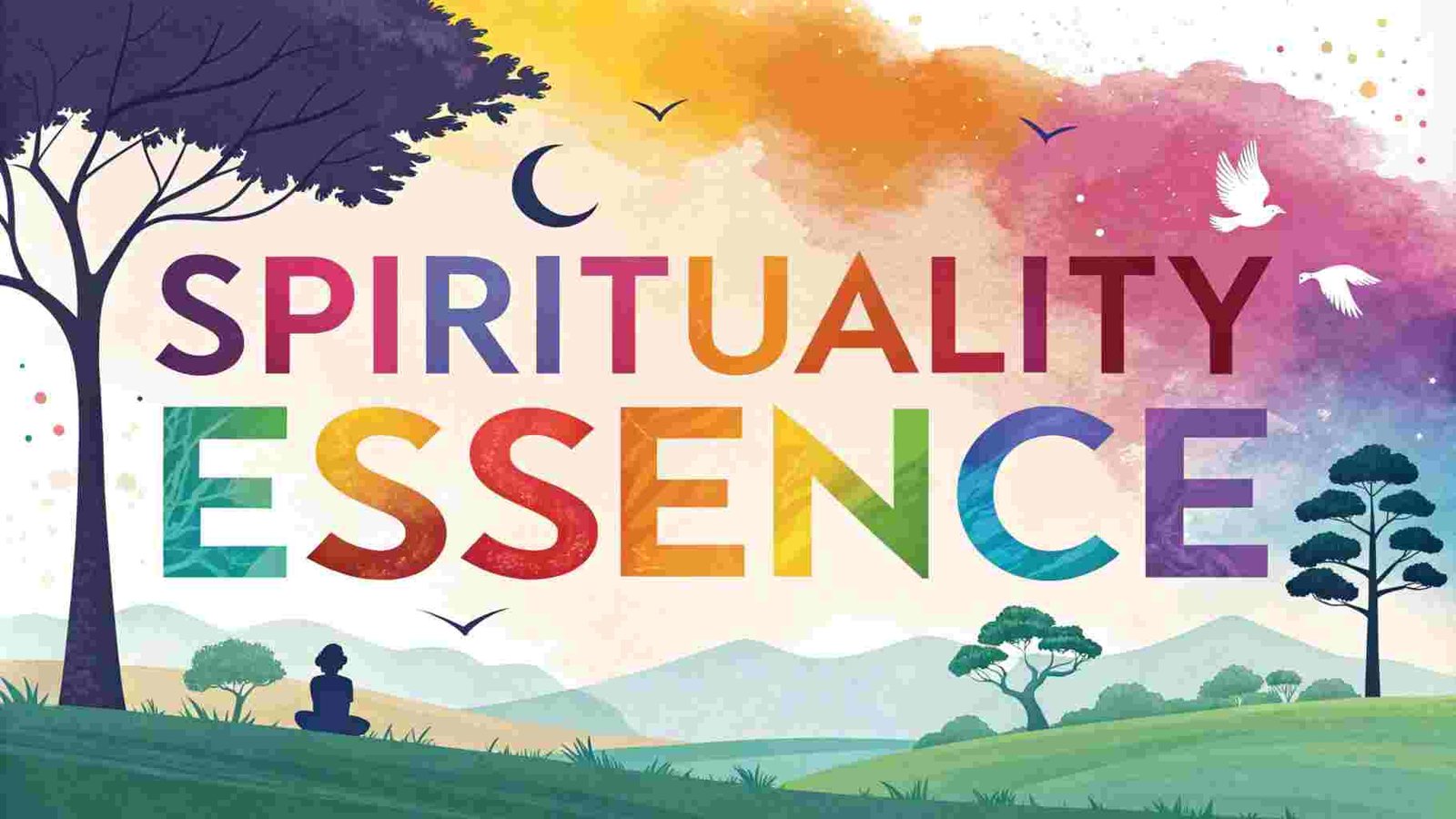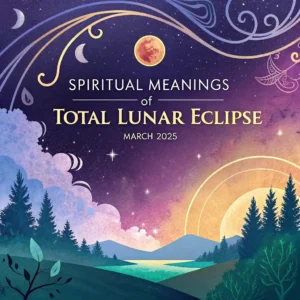Valentine’s Day is not just about heart-shaped cards, chocolates, or fancy dinners. It holds deeper meanings that touch our hearts and souls. While most people think of it as a day for romantic love, there’s so much more to discover!
From self-love to universal connection, this special day has spiritual lessons we can all learn from.
Are you ready to explore the hidden layers of Valentine’s Day? Keep reading because we’re diving into 14 spiritual meanings behind this beautiful celebration.
In a Nutshell

- Love starts with yourself: You cannot truly love others until you love yourself first.
- Connection matters: Valentine’s Day reminds us how important it is to nurture relationships.
- Gratitude is powerful: Showing appreciation strengthens bonds.
- Spiritual growth happens through love: Loving unconditionally helps your soul grow stronger.
- Acts of kindness count: Small gestures make big differences.
- Nature reflects love too: Flowers, trees, and animals show us what unconditional giving looks like.
- Forgiveness heals: Letting go of grudges brings peace.
- Friendship is love too: Don’t forget to celebrate platonic love on this day!
- Energy flows where focus goes: Focusing on love attracts positivity.
- Compassion spreads joy: Being kind creates ripple effects.
- Patience builds trust: Trust grows when you give time and care.
- Balance is key: Love should feel equal and fair.
- Creativity expresses feelings: Art, music, and words deepen emotional connections.
- Hope keeps love alive: Believing in better days fuels lasting relationships.
What Does Love Really Mean Spiritually?
When we talk about love spiritually, we mean something bigger than hugs and kisses. Love is an energy that connects everyone and everything. Imagine love as a warm light glowing inside every person, animal, and even plants. This light wants to shine brightly and share goodness with the world.
Love teaches us acceptance. Accepting people for who they are makes life easier and happier. For example, if someone likes different hobbies than you do, loving them means respecting their choices without judgment. Acceptance doesn’t mean agreeing with everything; it means letting people be themselves.
Another part of spiritual love is understanding that love is limitless. There’s no end to how much love you can give or receive. Think of love like water flowing in a river—it never runs out.
When you practice loving freely, amazing things happen. Your heart feels lighter, and your mind becomes calmer.
To grow spiritually, try practicing acts of kindness daily. Hold the door open for someone, smile at strangers, or simply say “thank you” often. These small actions remind you of the power of love.
Remember, spiritual love begins within yourself, so always take time to appreciate who you are.
Why Is Self-Love Important on Valentine’s Day?
Many people forget that Valentine’s Day isn’t only about couples. It’s also a perfect chance to celebrate YOU! Self-love means treating yourself kindly, setting healthy boundaries, and believing in your worth. Without self-love, it’s hard to fully enjoy any relationship.
Think about it this way: Would you pour water into a cracked cup? Probably not, right? The same applies to love. If your own “cup” is broken (meaning low self-esteem), you won’t have enough love to share with others. That’s why taking care of yourself comes first.
Here are simple ways to practice self-love on Valentine’s Day:
- Write down three things you love about yourself.
- Spend time doing activities that bring you joy, like painting or dancing.
- Give yourself compliments in the mirror.
- Eat your favorite food guilt-free.
Self-love isn’t selfish—it’s necessary. When you love yourself, you become stronger emotionally and mentally. Plus, you attract healthier relationships because you know what you deserve.

How Can Valentine’s Day Teach Us About Forgiveness?
Forgiveness might sound tricky, but it’s actually a gift you give to yourself. Holding onto anger or hurt only weighs you down. On Valentine’s Day, think about forgiving those who may have wronged you. This act frees your heart and allows new love to enter.
Imagine carrying a heavy backpack everywhere you go. Wouldn’t it feel nice to put it down? Forgiveness works the same way. Letting go of resentment lightens your load.
Start by writing a letter to the person you need to forgive (you don’t have to send it). Pour out your feelings honestly, then tear up the paper as a symbol of release.
Forgiveness doesn’t mean forgetting or excusing bad behavior. Instead, it means choosing peace over pain. By forgiving, you create space for healing and growth. Remember, forgiveness is a form of love—for others and for yourself.
The Role of Gratitude in Deepening Relationships
Gratitude turns ordinary moments into extraordinary ones. Saying “thank you” might seem small, but it carries immense power. On Valentine’s Day, take time to express gratitude toward loved ones. Tell them exactly what you appreciate about them.
For instance, instead of saying, “Thanks for being awesome,” say, “Thank you for listening to me when I needed support.” Specificity shows sincerity. Gratitude strengthens bonds because it reminds people they’re valued.
You can also write thank-you notes or create a gratitude jar. Fill it with little notes describing moments you’re thankful for. Over time, these notes become treasures reminding you of happy memories. Gratitude transforms relationships by focusing on the positives.
The Power of Connection: Building Bridges Through Love
Love is all about connection. It’s like a bridge that brings people closer together, no matter how far apart they may seem. On Valentine’s Day, we often think about romantic partners, but love connects us in many other ways too—through friendships, family ties, and even strangers.
Think about the last time you felt truly connected to someone. Maybe it was during a deep conversation with a friend or while playing a game with your sibling.
These moments remind us that connection happens when we share our true selves. When you open up and let others see who you really are, you build trust and understanding.
One way to strengthen connections on Valentine’s Day is by spending quality time with loved ones. Put away distractions like phones and focus on being present.
Play board games, cook a meal together, or simply sit and talk. These activities create memories that last a lifetime. Connection is the foundation of every strong relationship, and nurturing it makes love grow stronger.
Acts of Kindness: Small Gestures, Big Impact
Kindness is one of the simplest yet most powerful forms of love. A small act of kindness can brighten someone’s day and leave a lasting impression. On Valentine’s Day, challenge yourself to perform as many kind acts as possible. You’ll be amazed at how good it makes you feel!
For example, leave an encouraging note for a coworker, help a neighbor carry groceries, or surprise a friend with their favorite snack. Even smiling at strangers can make a difference. Smiles are contagious—they spread happiness wherever they go.
When you practice kindness, you contribute to a cycle of positivity. The person you help might then help someone else, creating a chain reaction of love.
Kindness costs nothing but means everything. By choosing to be kind, you show the world that love exists in everyday actions.
The Beauty of Unconditional Love
Unconditional love is accepting someone exactly as they are, without expecting anything in return. This type of love is rare but incredibly beautiful. It’s the kind of love parents have for their children or the bond between lifelong friends.
On Valentine’s Day, reflect on the unconditional love in your life and express gratitude for it.
To practice unconditional love, start by letting go of expectations. Instead of focusing on what others “should” do, appreciate them for who they are.
For instance, if your best friend forgets your birthday, don’t hold it against them. Focus on the countless times they’ve been there for you instead.
Unconditional love also involves patience and forgiveness. People aren’t perfect, and neither are you.
By embracing imperfections, you create a safe space where love can flourish. Unconditional love teaches us to see beyond flaws and cherish the essence of a person.

Finding Balance in Relationships
Healthy relationships thrive on balance. Love shouldn’t feel one-sided—it should flow equally between both parties. On Valentine’s Day, take a moment to evaluate your relationships. Are you giving as much as you’re receiving? If not, it might be time to adjust.
Balance doesn’t mean keeping score; it means ensuring mutual respect and effort. For example, if your partner always plans dates, offer to plan the next one. Or if your friend always listens to your problems, ask how they’re doing and lend an ear.
Balanced relationships also require clear communication. Talk openly about your needs and listen carefully to the other person’s perspective.
When both sides feel heard and valued, love grows stronger. Balance ensures that love remains fair and fulfilling for everyone involved.
Creativity as an Expression of Love
Love inspires creativity. From writing heartfelt letters to crafting handmade gifts, creative expressions deepen emotional connections. On Valentine’s Day, tap into your artistic side to show someone how much they mean to you.
If you’re not naturally artsy, don’t worry! Creativity comes in many forms. Write a poem, compose a song, or draw a picture—even if it’s just stick figures. What matters is the thought and effort behind it. Handmade gifts carry more meaning because they represent time and care.
Music and art also evoke emotions that words sometimes can’t. Play your favorite love song for someone special or watch a movie that reminds you of them.
Sharing creative experiences strengthens bonds and creates shared memories. Creativity allows love to shine in unique and personal ways.
Hope: Keeping Love Alive Through Challenges
Life isn’t always easy, and relationships face challenges too. During tough times, hope keeps love alive. Hope is believing that things will get better, even when circumstances seem bleak. On ValentineEveryday, remind yourself and your loved ones that hope is a powerful force.
When conflicts arise, approach them with optimism. Instead of thinking, “This will never work,” say, “We can figure this out together.” Positive thinking changes the energy of a situation and opens doors to solutions.
Hope also encourages perseverance. Whether you’re working through a disagreement or supporting each other through hardships, staying hopeful strengthens your bond. Hope fuels resilience and reminds us that love conquers all obstacles.
Compassion: Spreading Joy Through Understanding
Compassion is empathy in action. It’s about understanding someone else’s pain and wanting to ease it. Compassionate love goes beyond sympathy—it involves actively helping and supporting others. On Valentine’s Day, practice compassion by reaching out to those who might need extra care.
For example, check in on a friend who’s going through a tough time or volunteer at a local charity. Listen attentively when someone shares their struggles and offer comfort. Sometimes, just knowing someone cares can make all the difference.
Compassion benefits both the giver and receiver. Helping others fills your heart with warmth and purpose. Plus, compassionate acts inspire others to pay it forward. Compassion spreads joy and reinforces the idea that love is everywhere.
Patience: The Key to Trust and Growth
Patience is essential for building trust and fostering growth in relationships. Love takes time to develop, and rushing it can lead to frustration. On Valentine’s Day, commit to practicing patience with yourself and others.
If a friend is late replying to your message, resist the urge to feel upset. They might be busy or dealing with something important.
Similarly, if your partner makes a mistake, give them grace instead of jumping to conclusions. Patience shows that you value the relationship more than temporary frustrations.
Being patient also means allowing room for growth. People change over time, and relationships evolve. Embrace these changes with an open heart and mind. Patience builds trust and lays the groundwork for long-lasting love.
Nature’s Lessons in Love
Nature is full of examples of love and connection. Trees provide shelter for birds, bees pollinate flowers, and rivers nourish plants. Observing nature teaches us valuable lessons about giving and receiving love unconditionally.
On Valentine’s Day, spend time outdoors to connect with nature’s wisdom. Take a walk in the park, plant a tree, or watch the sunset.
Notice how everything in nature works together harmoniously. This interconnectedness mirrors human relationships—we rely on each other to thrive.
Nature also reminds us to slow down and appreciate the present moment. Watch how animals play or how leaves sway in the wind. These simple pleasures bring peace and joy. Nature’s love is pure and abundant, offering endless inspiration.
Final Thoughts: Love Is Everywhere
Valentine’s Day is a celebration of love in all its forms. Whether you focus on self-love, forgiveness, gratitude, or connection, remember that love is infinite. It’s not confined to romantic gestures—it’s woven into every aspect of life.
By embracing the spiritual meanings of Valentine’s Day, you enrich your relationships and deepen your understanding of love.
Love starts with you, flows outward to others, and returns tenfold. So this year, celebrate love in all its beauty and complexity. Because love, in any form, makes the world a brighter place.
FAQs
What Are Some Non-Romantic Ways to Celebrate Valentine’s Day?
Valentine’s Day isn’t just for couples! You can celebrate by spending time with friends, family, or even pets. Host a game night, bake cookies together, or volunteer at a local shelter. Acts of kindness, like donating clothes or helping neighbors, spread love too.
How Can I Practice Self-Love Daily?
Start each day with affirmations like “I am worthy” or “I choose happiness.” Treat yourself to relaxing baths, read inspiring books, or meditate. Surround yourself with supportive people who uplift you.
Why Is Forgiveness Hard Sometimes?
Forgiveness can be tough because emotions like anger or sadness feel raw. However, holding onto negativity harms you more than anyone else. Practicing empathy and understanding helps ease the process.
Can Nature Teach Us About Love?
Absolutely! Trees provide shade, flowers bloom beautifully, and animals care for their young. Nature shows us how to give freely and unconditionally. Spending time outdoors connects you to this natural flow of love.

Hello, I’m Zephyra, your guide at SpiritualityEssence.com. I’m passionate about uncovering life’s mysteries and sharing transformative insights. Let’s explore mindfulness, ancient rituals, and the path to a more awakened life together. Join me on this spiritual journey!














